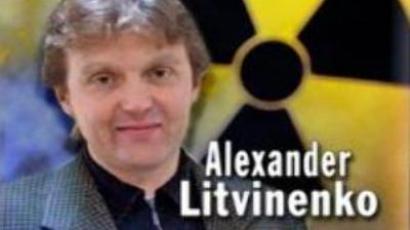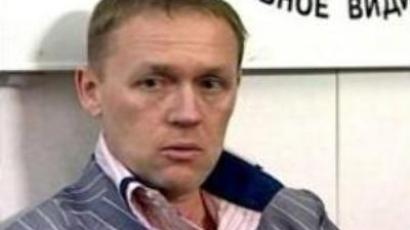Russia accuses UK of disrespect and ‘colonial thinking’
Relations between Moscow and London remain tense over Russia's refusal to extradite Andrey Lugovoy, Britain’s main suspect in the murder of Aleksandr Litvinenko.
The comments were made by President Vladimir Putin while he was speaking to a group of Russian youth movement activists.
“A tragedy happened. Mr Litvinenko died in London. They accuse one of our citizens, Mr. Lugovoy. They want us to extradite him there. But there are 30 people guilty of enormous offences whom our law enforcement agencies are seeking, and they are hiding there in London. They don’t even think of extraditing them. They’ve had the same problems, but to a lesser extent, with the United States, with France and other countries. They’ve had similar problems but they never extradited people hiding on their territory, including people suspected and accused of terrorism. However, they place overstated claims on other countries including ours,” Vladimir Putin said.
Vladimir Putin, Russian PresidentAt the same time they give us offensive advice to change our Constitution. They should change their brains instead – because their suggestion is an obvious relic of colonial thinking
“At the same time they give us offensive advice to change our Constitution. They should change their brains instead – because their suggestion is an obvious relic of colonial thinking. They must have forgotten that Great Britain is no longer a colonial country and there are no colonies. And praise God, Russia has never been a colony of Great Britain. They also insult themselves by giving such advice. This way they show that their mentality still belongs to the previous century or even one before it. Partners should be treated with respect. Then we will respect them as well,” the Russian President stated.
The former security officer, Andrey Lugovoy is the British prosecutors’ main suspect in the murder of Aleksandr Litvinenko and the British side insists he should stand trial in London.
Andrey Lugovoy, himself says he is ready to share information about the Litvinenko case with British authorities but is unwilling to agree to a possible trial in a third country.
“I’ve heard only one person saying about being tried in the third country. It’s Boris Berezovsky. But his words are a cheap political maneuvering aimed at attracting world attention. He is lying and will never travel to any third country by himself. Besides, there is such a thing as the Penal Code. And according to it, how are we going to be tried? By the laws of a third country? And who will set the criteria for choosing the third country? Should it be France, Libya, Iran, Kazakhstan or Denmark? I’d like to remind you there was an extradition procedure over Zakayev in Denmark. Denmark decided that he is not a terrorist but secessionist and then refused to extradite him and allowed Zakayev to fly to London,” stated Andrey Lugovoy.
Russian prosecutors say the country's constitution forbids the extradition of its citizens and have called the subsequent British expulsion of its diplomats politically motivated.
So far, there’s been muted reaction both from British officials and in the local media to Vladimir Putin’s words.
A Foreign Office Spokesman expressed the hope to find willingness on the part of the Russian authorities to co-operate constructively on the issue, and to bring Andrey Lugovoy to justice in a British court.
There was a debate in the British Parliament on Wednesday initiated by conservative MP Mark Pritchard, devoted to relations between Britain and Russia. The MP suggested the government look into the possibility of conducting a trial of Andrey Lugovoy in Russia, or in a third country, in the presence of Russian, British and independent judges.
However, the majority in parliament were skeptical about Mr Pritchard’s suggestions saying that there was a lack of confidence in Russia’s judicial system.
Meanwhile, despite the increasing rhetoric from both Russia and the U.K., Great Britain hasn't changed its visa issuing procedures for Russian officials.
Russia requested an explanation regarding the state of visa rules between the two nations after the British Foreign Secretary announced a review of visa regulations. According to the Russian Foreign Ministry, the visa regulations have not changed and are still in effect.
Russia says it will also abide by the same rules with British subjects.
Andrey Zagorsky, a political analyst at the Moscow State University of International Relations believes relations between Russia and the UK are at breaking-point, but a solution can still be found.
“I think this is the moment when we can either increase the tension, or we can slow down the political rhetoric, and look at legal options, because I do believe that we have legal solutions to this problem,” he said.
Despite the tension, both Russia and Britain say they are willing to keep co-operating in other important spheres such as Iran, Kosovo, and Middle East.
It should be also noted that Russia and Britain are deeply involved in economic co-operation, with Britain being one of the chief beneficiaries of Russia’s economic success. So the worsening of the crisis is in the interest of neither Russia nor the UK.















